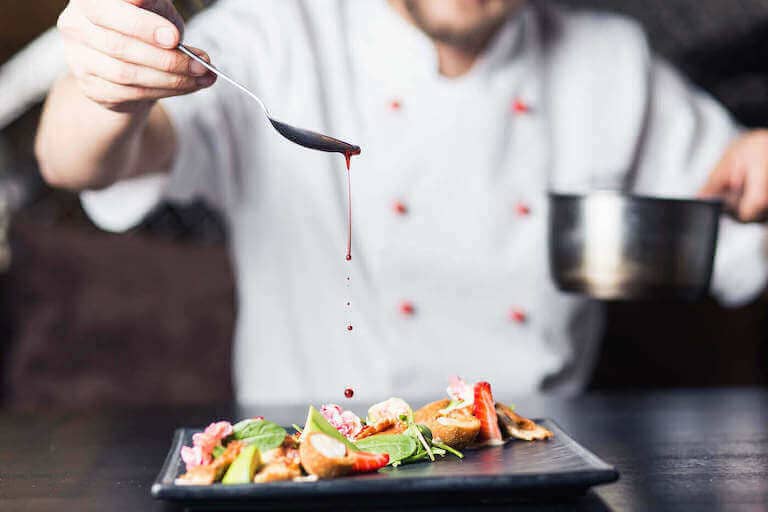To create a piece titled “Secrets from the Hotel Kitchen: Tips and Tricks for Culinary Excellence,” it’s important to delve into practical advice and unique insights gleaned from professional chefs in the bustling environment of hotel kitchens. Here’s a compilation of expert tips designed to elevate your cooking skills to a level of culinary mastery often seen in these high-end settings:
1. Mastering Mise en Place
The French culinary phrase “mise en place” means “everything in its place.” In hotel kitchens, this is a fundamental practice. Before starting any recipe, chefs prepare and organize their ingredients and tools. This not only streamlines the cooking process but also reduces stress and errors during service.
2. Seasoning in Layers
Chefs in hotel kitchens often season their dishes at multiple stages. This could involve salting meat before cooking, adding spices during, and finishing with fresh herbs or a squeeze of citrus. Layering flavors like this builds depth and complexity in the dish.
3. Investing in High-Quality Ingredients
The quality of ingredients is pivotal. Chefs often source the freshest local produce, quality meats, and artisan goods, which can significantly enhance the taste of a dish. While not everyone can access exotic ingredients or high-end products, opting for the best available options within your budget can make a noticeable difference.
4. Understanding Heat Management
Heat control is critical. Whether searing meat, simmering sauces, or baking pastries, understanding and managing the temperature can affect the texture, flavor, and appearance of food. Hotel chefs know their equipment well and make adjustments as needed to achieve the desired results.
5. The Importance of a Tasting Spoon
Chefs constantly taste their dishes at different stages of cooking. This practice helps adjust seasoning and ensures the final product meets their standards. Having a dedicated tasting spoon is a simple yet effective tool every home cook should adopt.
6. Embracing Global Techniques
Many hotel kitchens are melting pots of cultural influences, reflecting global cuisines. Learning techniques from various culinary traditions can add an exciting twist to your cooking, such as using a tagine for Moroccan dishes or perfecting an Italian risotto.
7. Efficient Workflow
Efficiency is key in a busy hotel kitchen. This includes planning the workflow, from prep to plating. At home, you can improve efficiency by organizing ingredients and tools before starting and cleaning as you go.
8. Presentation Matters
First impressions are crucial, and in hotel dining, presentation is nearly as important as taste. Simple techniques like wiping the edges of plates, using garnishes strategically, and arranging food attractively can turn an ordinary meal into a feast for the eyes.
9. Waste Not
Waste reduction is a significant focus in hotel kitchens. Chefs utilize as much of each ingredient as possible, such as making stocks from vegetable scraps and bones or finding creative uses for leftovers.
10. Continual Learning and Adaptation
The best chefs are perpetual students, always eager to learn new techniques, recipes, and trends. The culinary world evolves constantly, and staying informed and adaptable is key to maintaining excellence.
By integrating these practices into your cooking routine, you can bring some of the magic of hotel kitchens into your own culinary creations. Whether you’re a novice or an experienced cook, these tips can help enhance your skills and impress your guests with restaurant-quality dishes right from your home kitchen.


